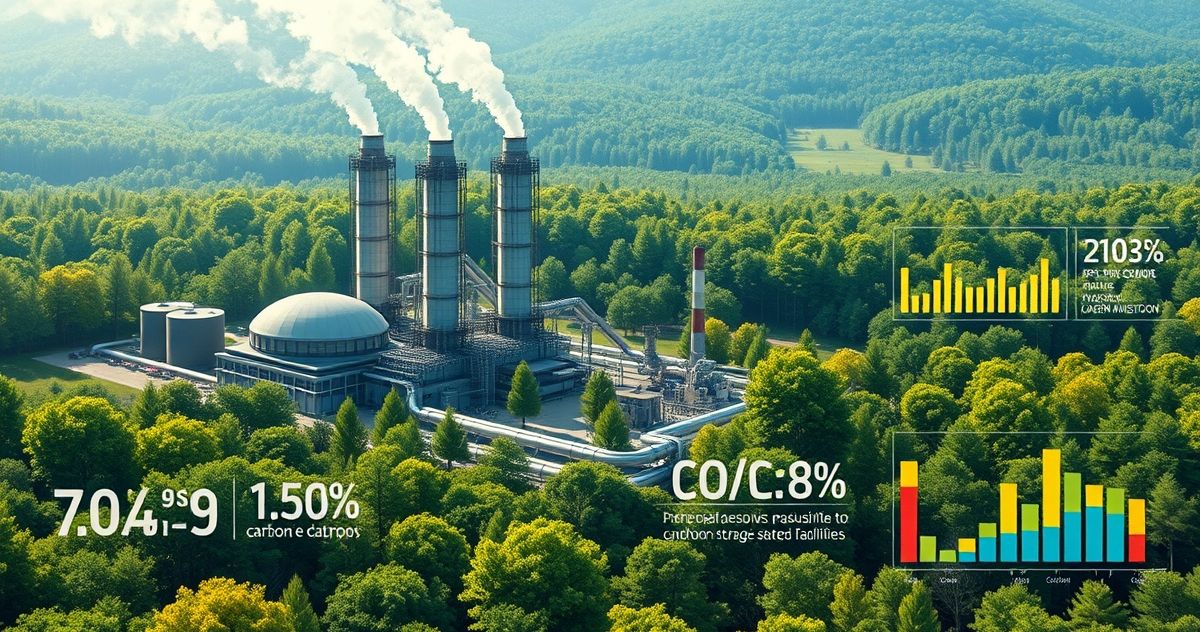Understanding Carbon Sequestration Credit
Carbon Sequestration Credit refers to a tax incentive program designed to encourage organizations to capture and sequester carbon dioxide (CO2) emissions from the atmosphere or point sources, like industrial facilities. This initiative forms part of broader efforts to mitigate climate change, enhancing the economic feasibility of projects aimed at reducing greenhouse gas emissions.
Primary Purpose
The primary aim of the Carbon Sequestration Credit is to provide financial benefits to companies and organizations that actively participate in carbon capture projects. By offering tax credits, the government incentivizes investment in technologies and practices that help in reducing atmospheric CO2 levels, ultimately contributing to global climate change mitigation efforts.
Key Features or Components
- Eligibility: The credit is available to any entity capturing significant amounts of CO2, typically defined by thresholds set in tax legislation. This includes power plants, industrial manufacturers, and agricultural operations that invest in carbon capture and storage technologies.
- Credit Amounts: Credit amounts depend on the method and volume of CO2 captured. Credits are often offered per metric ton of CO2 sequestered, and the value can vary depending on whether the CO2 is stored in geological formations or used for enhanced oil recovery.
- Duration: Credits can usually be claimed for a specified number of years after the project becomes operational, promoting long-term investments in carbon sequestration technologies.
- Verification and Reporting: Companies must accurately measure, verify, and report the volumes of CO2 captured and stored to qualify for credits.
Relevant Filing or Compliance Requirements
Entities claiming Carbon Sequestration Credits must comply with several critical requirements:
- Documentation: Maintain extensive records of both the capture and storage processes, ensuring they meet IRS standards.
- Measurement Protocols: Implement accurate and reliable methods to measure the amount of CO2 sequestered, which must often be validated by a third-party auditor.
- Regular Reporting: Submit regular reports to tax authorities, detailing the volumes of CO2 captured and stored, along with the methods used.
- Compliance Audits: Be prepared for potential audits from the IRS or other regulatory bodies to ensure compliance with eligibility criteria.
Penalties or Consequences for Non-Compliance
Failure to adhere to compliance requirements can result in several penalties:
- Credit Denial or Recapture: Non-compliant entities risk having their credits denied or subject to recapture, whereby previously claimed credits are required to be repaid.
- Fines and Legal Action: Misreporting or inadequate documentation can lead to fines and potential legal actions from the IRS.
- Reputational Harm: Public exposure of non-compliance can damage a company’s reputation, limiting future eligibility for tax benefits and other partnerships.
Importance in Financial and Environmental Compliance
The significance of Carbon Sequestration Credits extends beyond mere taxation – they are crucial in aligning financial incentives with environmental responsibilities. By offering these credits, governments effectively encourage industries to take proactive measures against climate change. This alignment has several broader implications:
- Environmental Impact: Promotes investments in advanced technologies and practices that reduce the carbon footprint, contributing to global emissions reduction targets.
- Economic Incentives: Provides financial returns on investments in carbon capture technologies, making previously cost-prohibitive projects viable.
- Corporate Responsibility: Encourages companies to adopt sustainable practices, enhancing their corporate social responsibility profiles and meeting stakeholder expectations.
- Innovation and Growth: Fuels advancements in technology and infrastructure related to carbon capture and storage, fostering innovation and potential job creation in green industries.
By effectively utilizing Carbon Sequestration Credits, businesses can fulfill their environmental obligations while also benefiting financially. This integrative approach aids in the transition towards a more sustainable economy, highlighting how financial mechanisms can align with ecological objectives.


 Chinese (Simplified)
Chinese (Simplified) English
English Spanish
Spanish